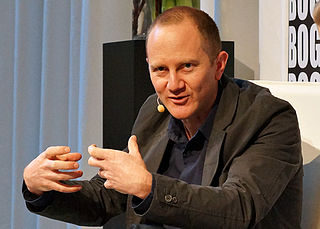A Quote by Brene Brown
I've learned a lot since I was a new mother. My approach to struggle and shame now is to talk to yourself like you'd talk to someone you love and reach out to tell your story.
Related Quotes
Love is a story we tell with another person. It's cocreation through conarration. When you hit bumps in the road and challenges, you write a new chapter in your story together. Love is the constant act of revising and retelling your own story in real time. You don't do it by yourself. You do it with someone else. The only way you do that is to talk to each other and create a shared narrative.
I don't know if that's the best story for BoJack, long-term. I do love the world, and I love playing around in it and it feels like an elastic enough world that, any story I want to tell, I can tell about these characters in this world. I can talk about parents and children, husbands and wives, the troops, or Hollywood. It does feel like an endless playground at this point, it would be a shame if we cut it off early for fear of repeating the same things over and over again. But I am looking to move the story and character somewhat.
What's your story? It's all in the telling. Stories are compasses and architecture; we navigate by them, and to be without a story is to be lost in the vastness of world that spreads in all directions like arctic tundra or sea ice. To love someone is to put yourself in their place, we say, which is to put yourself in their story, or figure out how to tell yourself their story. Which means that a place is a story, and stories are geography, and empathy is first of all an act of imagination, a storyteller's art, and then a way of traveling from here to there.
The angels don't care what words you use. They appreciate the engraved, fancy prayers, but they say, "Just talk to us." You can use ordinary language - the language you use when you talk with your best friend - when you ask for help. If you want to reach out to the angels for something very personal for yourself, you can say, "Dear guardian angels and archangels, I ask that you come to me now and help me resolve this problem or issue." And then you just pour out your heart to the angels. You can do it silently in your mind. You can say it out loud. You can write it.
I've learned that whenever I decide something with an open heart, I usually make the right decision. I've learned that even when I have pains, I don't have to be one. I've learned that every day you should reach out and touch someone. People love a warm hug, or just a friendly pat on the back. I've learned that I still have a lot to learn.
A lot of guys... they want to take the big shot, and they talk about it because they're scared of it. You never heard me talk about it. You heard a lot of guys talk about it. But you don't have to talk about it, because if you have the confidence in yourself, and your team believes in you, you don't fear anything. You don't fear losing.
The best time to tell your story is when you have to tell your story. When it's not really a choice. But then, when you get that first, messy, complicated version down, you have to read it over and be very tough on yourself and ask, 'Well what's the story here?' If you're lucky enough to have someone you trust looking over your shoulder, he or she can help you if [you] lack perspective on your own story.
































